 November 8, 2018 John E. Ross, KD8IDJ, Editor
| ||||||
Doreen Bogdan-Martin, KD2JTX, Elected as ITU Telecommunication Development Bureau Director ARRL member Doreen Bogdan-Martin, KD2JTX, has been elected as Director of the International Telecommunication Union (ITU) Telecommunication Development Bureau (BDT). Her election, on the first ballot in a three-way race, came on November 1 at the ITU's Plenipotentiary 2018 Conference in Dubai. Bogdan-Martin becomes "We must help governments integrate ICTs [information and communications technologies] into their national development frameworks, actively support[ing] their ministries to ensure digital development strategies emphasize human capacity, digital skills, and empowering people," she said. "I envisage the BDT redoubling its efforts on digital inclusion, working to bring online the remaining 3.9 billion people still offline." Her candidacy had strong support from US officials, including Secretary of State Mike Pompeo, Commerce Secretary Wilbur Ross, and FCC Chairman Ajit Pai. "Ms. Bogdan-Martin is a true leader and professional who has dedicated more than 25 years to ensuring that all people can benefit from information and communication technologies," Pompeo wrote in endorsing her candidacy. "I have no doubt that Ms. Bogdan-Martin will be a driving force to ensure connectivity for all."
Bogdan-Martin has more than 20 years of experience at the ITU. During the past decade she has headed the ITU General Secretariat Strategic Planning and Membership Department for the Secretary General. Her responsibilities have included developing the ITU's strategic and operational plans in the context of ICT trends and the global information economy, representing the ITU in engagement with other bodies, and directing and managing all ITU global conferences. Read more. FCC Fines Amateur Radio Licensee $25,000 for Operating Unlicensed FM Station In an FCC Enforcement Bureau case going back to early 2015, a Paterson, New Jersey, Amateur Radio licensee has been penalized in the amount of $25,000 for allegedly continuing to operate an unlicensed FM radio station. The FCC issued a Forfeiture Order on October 30 to Winston A. Tulloch, KC2ALN, a General-class licensee. The fine followed an April 2018 Notice of Apparent Liability for Forfeiture (NAL) issued to Tulloch for alleged "willful and repeated violation" of Section 301 of the Communications Act of 1934, as amended, by operating an unlicensed FM radio station on 90.9 MHz in Paterson. Tulloch did not respond to the NAL, the FCC indicated. "Commission action in this area is essential because unlicensed radio stations do not broadcast Emergency Alert Service messages and therefore create a public safety hazard for their listener," the FCC said Following up on February 2015 complaints regarding pirate radio operations in Paterson, FCC agents spotted a signal on 90.9 MHz that "appeared to be an unauthorized radio station." Agents determined the signal was emanating from a multi-family dwelling and noticed an FM antenna on the structure. The measured field strength exceeded the limits allowed for Part 15 unlicensed devices. Through a solicitation broadcast on the station for advertisers and a vehicle parked outside the building, the FCC agents were able to determine that the telephone number in the announcement belonged to Tulloch, and the car was registered in his name. FCC agents made several visits to Paterson in late 2015 and early 2016. In October of 2016, agents returned to Paterson and determined that the signal source had relocated to another nearby multi-family structure. A Notice of Unlicensed Operation (NOUO) was posted on the door of the building, and the following month, the FCC mailed an NOUO to Tulloch. Subsequent visits revealed that the station was still in operation and, at some point, had moved back to its prior location. Additional NOUOs were issued. Finally, on September 15, 2017, two agents returned to Paterson and determined that the station no longer was on the air. Read more. The Doctor Will See You Now! "External Speakers" is the topic of the new (November 8) episode of the "ARRL The Doctor is In" podcast. Listen...and learn!
Every 2 weeks, your host, QST Editor-in-Chief Steve Ford, WB8IMY, and the Doctor himself, Joel Hallas, W1ZR, will discuss a broad range of technical topics. You can also email your questions to doctor@arrl.org, and the Doctor may answer them in a future podcast. Enjoy "ARRL The Doctor is In" on Apple iTunes, or by using your iPhone or iPad podcast app (just search for "ARRL The Doctor is In"). You can also listen online at Blubrry, or at Stitcher (free registration required, or browse the site as a guest) and through the free Stitcher app for iOS, Kindle, or Android devices. If you've never listened to a podcast before, download our beginner's guide. Oregon ARES Drill Scenario Simulates Double Virus and Hypothetical Terrorist Attack On November 8 in Oregon, the Amateur Radio Emergency Service® (ARES) emergency preparedness drill known as the Simulated Emergency Test (SET) will use an exercise scenario focusing on viruses -- biological and computer -- that wreak havoc on the state's communication systems.
The scenario also involves power companies and government telecommunications being affected. Participants will be told that ham radio repeaters are on backup power or have failed and that they will have to stretch their skills accordingly. Ultimately, the exercise will simulate the introduction of biological and computer viruses by a state-sponsored terrorist organization that is trying to find vulnerabilities in the state's infrastructure. Then, exercise participants will train local officials on using VHF and HF radios.
As the exercise continues, ARES volunteers will need to set up high-powered stations in remote areas to communicate with urban centers. After participants prove that ARES would be able to maintain telecommunication links for several days, the exercise simulated storm damage to antennas on county emergency operations centers (EOCs). This multi-step exercise scenario is designed to encourage ARES volunteers to use their ingenuity and training to restore communications when faced with a multifaceted disaster event. "The MacGyver[s] among you will have the opportunity to solve this problem, gain extra points, and help your county shine while teaching us all something new," said Grant County ARES Emergency Coordinator Steve Fletcher, K7AA, who described the scenario. Oregon ARES teams will join with the Oregon Office of Emergency Management in conducting the drill. More information is on the Oregon ARES website. -- Thanks to John S. Sanders, KE7JSS, Oregon Section Public Information Officer Florida Air Show Gives Ham Radio Some On-the-Air Exposure The Everglades Amateur Radio Club (W4SVI) put ham radio in the spotlight during the 2018 Wings Over Homestead Air and Space Show, held in Homestead, Florida, November 2 - 4. "We were given space on the tarmac in the STEM section which was intended [to get] kids interested in science, technology, engineering, and mathematics," said Robert Cruz, KE4MCL. "We were allowed to bring two of our field station vehicles right up to the tent and set up their free-standing masts."
The club fielded operating positions on HF through UHF, slow-scan TV, and satellites for special event station W4H. "All three stations were active during the event. Since we set up early on Friday, we operated fully off solar power that day as the onsite generator was not to be fired up until the weekend," Cruz explained. He said arriving on Friday offered an additional benefit. "The setup crew got to see most of the air show, plus some cool behind the scenes stuff, minus about 100,000 people," he quipped. "Since this was a military airshow, I brought along a Collins R-388 and a BC-348 just for show and tell," Cruz recounted. "We had a few veterans come around and talk to us about how they used to operate one of these while [in the service]." Cruz said a highlight of the weekend was a contact by Steve Taylor, W1HQL, with a crew member of the International Space Station. "The ISS had a scheduled school contact, and once they got out of range of the school, Steve called on a whim and the ISS responded for a quick QSO," Cruz said. He said the club, which is headquartered in Homestead, tried something a little different at this year's air show. "Traditionally, Amateur Radio displays are filled with call signs and terminology that the general public doesn't understand," he said. "To a non-ham, a call sign looks like a license plate number, for example. We created a new banner targeted at those interested in preparedness and made sure it had plain English and not 'hamspeak' on it." The club also created a half-page handout with the club's information and meeting time on it for visitors to take home instead of relying on having to look things up online. "We shall see if the new banner and handouts paid off at the next club meeting," Cruz said. Other operators taking part included Alain Arocha, K4KKC; Esther Cruz, KI4OTX; Steve Taylor, W1HQL; John Kolasinski, KK4QKL; Logan Brauer, W0LAB; Frank DeCespedes, AK4FU; Luis Pinon, KI4VEY; Ivan Cholakov, NO2CW, and Tommy Cholakov, N1SPY. -- Thanks to Robert Cruz, KE4MCL ARRL Contests Landing Page Offers Additional Enhanced and Expanded Content The new ARRL Contests page continues to develop with the addition of enhanced and expanded contest reporting. The Contests page will soon include complete 2018 results, including full results articles from QST, expanded results, line scores, log-checking reports, soapbox forums, and database searches.
The previous Contest Results Articles page, which offers current and historical results dating back some 20 or more years, will be known as the "legacy site" going forward. FCC Accepting Applications for its Engineering Honors Program The FCC is accepting applications from graduate engineers for its 1-year career development Engineering Honors Program, launched this past spring. The deadline to apply is November 30, 2018. The program is open to recent engineering school graduates and current students who will graduate this academic year. Current students who will graduate in December will be considered and are encouraged to "With the successful launch of the Honors Engineer Program earlier this year, we are now looking to hire a new group of top-notch engineers," said FCC Chairman Ajit Pai. "This will maintain our commitment to replenishing and strengthening our engineering expertise here at the Commission." The FCC said it is looking for new engineering talent "to work on cutting-edge issues in the communications and high-tech arenas." These include enabling the introduction of new technologies and services such as 5G, the Internet of Things, next-generation TV broadcasting, broadband satellite systems, and broadband deployment. Interested candidates should review the recruitment announcement and apply online. Read more. New Islands on the Air Groups Announced
Balister said he hopes to announce a second tranche of new IOTA groups at the HAM RADIO convention in Friedrichshafen, Germany, in June 2019. Special Call Signs Commemorate Centenary of World War I Armistice Several countries around the world have authorized the use of special call signs or prefixes to mark the centenary of the armistice that marked the end of hostilities on the Western Front of World War I. The initial armistice took effect on November 11, 1918, at 11 AM (the Treaty of Versailles that officially ended World War I was not signed until the following year). Formerly known as Armistice Day in the US and in other countries, November 11 later became recognized as Veterans Day in the US, and as Remembrance Day in others, as a day to honor veterans of the armed services from all wars and conflicts.
In the UK, special event station GB100ARM will be on the air until November 28, operated by the HMS Belfast Radio Group. Operation will take place from the bridge wireless office aboard HMS Belfast. The Wireless Institute of Australia (WIA) has secured special event call signs for use across all Australian states and territories to commemorate the signing of the Armistice. These will take the form VI#PEACE and VI#LWF, depending upon Australian call district -- 1 through 0. Listen, too, for VI100PEACE and VI9PEACE from Christmas Island. These call signs will be available for use from November 3 to November 11. In Belgium, radio amateurs may use the OP prefix instead of ON during November as part of the 100th anniversary. The "P" stands for "poppies." The association between poppies and Armistice Day (and, later, Veterans Day and Remembrance Day) was inspired by the World War I poem "In Flanders Fields," by John McCrae, which refers to poppies as the first flowers to grow in the earth above soldiers' graves in the Flanders region of Belgium. Veterans groups in some countries hand out paper poppies in conjunction with Veterans Day/Remembrance Day observances. Additional stations include France's TM5PAX, which is active on all bands and modes through November 11, and South Africa's ZS100WWI, which is on the air for the entire month of November. Several groups and organizations have announced special events for Veterans Day, officially observed this year on Monday, November 12. In Brief...
The K7RA Solar Update Tad Cook, K7RA, Seattle, reports: On November 7 at 2244 UTC, the Australian Space Forecast Centre issued a geomagnetic disturbance warning, due to a co-rotating interaction region ahead of a coronal hole high-speed solar wind stream. Active geomagnetic conditions are predicted for November 9, and unsettled to active conditions on November 10.
The predicted planetary A index from USAF and NOAA is milder than the Australian prediction, with the outlook for November 8 - 14 at 15, 8, 5, 8, 16, 12, and 8; 5 on November 15 - 24; 8 on November 25; 5 on November 26 - 30; 15, 20, 12, and 8 on December 1 - 4; 5 on December 5 - 6; 15 and 12 on December 7 - 8, and 5 on December 9 - 22. Predicted solar flux is 70 on November 8 - 11; 68 on November 12 - 14; 69 on November 15; 70 on November 16 - 17; 69 on November 18 - 19; 68 on November 20 - December 8; 70 on December 9 - 14; 69 on December 15 - 16, and 68 on December 17 - 22. Space Weather Woman Tamitha Skov, WX6SWW, posted a new video on November 4. Sunspot numbers for November 1 - 7 were 0, 0, 0, 0, 0, 0, and 0, with a mean of 0. The 10.7-centimeter flux was 66.8, 67.6, 67.4, 66.6, 68.3, 68.8, and 68.7, with a mean of 67.7. Estimated planetary A indices were 5, 4, 4, 16, 35, 10, and 10, with a mean of 12. Estimated mid-latitude A indices were 5, 3, 3, 7, 22, 9, and 8, with a mean of 8.1. Share your reports and observations. Just Ahead in Radiosport
See the ARRL Contest Calendar for more information. For in-depth reporting on Amateur Radio contesting, subscribe to The ARRL Contest Update via your ARRL member profile email preferences. Upcoming ARRL Section, State, and Division Conventions
Find conventions and hamfests in your area.
. .
Subscribe to...
Free of charge to ARRL members...
| ||||||
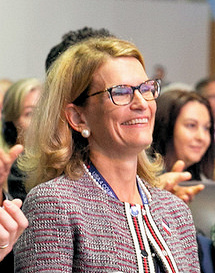 the first woman on the ITU executive team. Running on a campaign theme of "Sustainable Digital Development for All," Bogdan-Martin said she would work toward a Telecommunication Development Bureau that helps its members benefit from the drivers of innovation and economic development.
the first woman on the ITU executive team. Running on a campaign theme of "Sustainable Digital Development for All," Bogdan-Martin said she would work toward a Telecommunication Development Bureau that helps its members benefit from the drivers of innovation and economic development.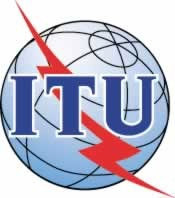 FCC Chairman Pai extended congratulations to Bogdan-Martin, who, he said, "has deep expertise in development issues and will play a pivotal role in accelerating the spread of digital communications throughout the globe."
FCC Chairman Pai extended congratulations to Bogdan-Martin, who, he said, "has deep expertise in development issues and will play a pivotal role in accelerating the spread of digital communications throughout the globe." in the Forfeiture Order. "Moreover, unlicensed radio stations create a danger of interference to licensed communications and undermine the Commission's authority over broadcast radio operations."
in the Forfeiture Order. "Moreover, unlicensed radio stations create a danger of interference to licensed communications and undermine the Commission's authority over broadcast radio operations." Sponsored by
Sponsored by .jpg) The drill begins with a simulated highly contagious bird flu virus that spreads to the state's borders, overwhelming hospitals and leading to mass panic. A day later, the drill moves to a simulated widespread internet shutdown owing to what's called the "stepper virus." If that weren't enough, it goes on to include a hypothetical virus that would cause the shutdown of digital processors in wireline and cell towers.
The drill begins with a simulated highly contagious bird flu virus that spreads to the state's borders, overwhelming hospitals and leading to mass panic. A day later, the drill moves to a simulated widespread internet shutdown owing to what's called the "stepper virus." If that weren't enough, it goes on to include a hypothetical virus that would cause the shutdown of digital processors in wireline and cell towers.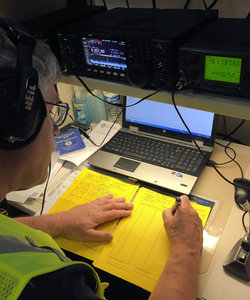
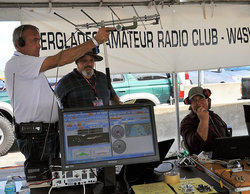
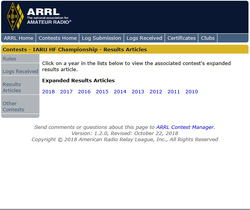 Contests are listed -- and linked -- in the left-hand column of the page and as tabs at the top of the page for categories of log submissions, logs received, certificates, and clubs. When users select an event from the left-hand column, the page will display activity links that include rules, logs received, results articles, and other contests (which returns the user to the Contests home page). Selecting "Results Articles" takes the user to the "Full Results" articles list, hyperlinked by year.
Contests are listed -- and linked -- in the left-hand column of the page and as tabs at the top of the page for categories of log submissions, logs received, certificates, and clubs. When users select an event from the left-hand column, the page will display activity links that include rules, logs received, results articles, and other contests (which returns the user to the Contests home page). Selecting "Results Articles" takes the user to the "Full Results" articles list, hyperlinked by year..jpg) apply. At the end of the 1-year program, Honors Program engineers will be eligible for consideration for continued employment at the FCC.
apply. At the end of the 1-year program, Honors Program engineers will be eligible for consideration for continued employment at the FCC..JPG) Islands on the Air (
Islands on the Air ( While not a special prefix, WW1USA -- the call sign of the National World War I Museum Amateur Radio Club -- was on the air from the National World War I Museum and Memorial in Kansas City, Missouri, over the November 3 - 4 weekend. Other allied countries that took part in World War I will host special event Amateur Radio stations or call signs to commemorate the centenary of the Armistice.
While not a special prefix, WW1USA -- the call sign of the National World War I Museum Amateur Radio Club -- was on the air from the National World War I Museum and Memorial in Kansas City, Missouri, over the November 3 - 4 weekend. Other allied countries that took part in World War I will host special event Amateur Radio stations or call signs to commemorate the centenary of the Armistice..jpg) JK Antennas
JK Antennas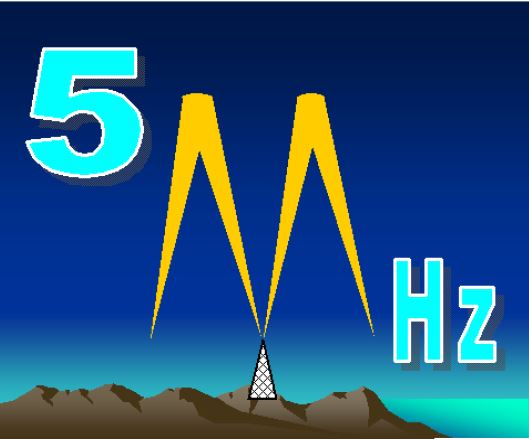 Radio amateurs in India now have access to three new bands. India's Ministry of Communications' Department of Telecommunications has published an updated
Radio amateurs in India now have access to three new bands. India's Ministry of Communications' Department of Telecommunications has published an updated .jpg) A new Bank of Lithuania gold coin features two Amateur Radio satellites. The commemorative gold 5⬠coin released by Bank of Lithuania (Lietuvos Bankas) features the country's LituanicaSAT-1(LO-78) and LitSAT-1 Amateur Radio Satellites. The two CubeSats were launched to the International Space Station (ISS) on January 9, 2014, and deployed from the ISS on February 28. LituanicaSAT-1 carried an FM transponder and a camera, while LitSat-1 had a linear (SSB/CW) transponder developed by William Leijenaar, PE1RAH. The face of the gold coin features the Lithuanian coat of arms as a star constellation, with LituanicaSAT-1 and LitSAT-1 on the other side.
A new Bank of Lithuania gold coin features two Amateur Radio satellites. The commemorative gold 5⬠coin released by Bank of Lithuania (Lietuvos Bankas) features the country's LituanicaSAT-1(LO-78) and LitSAT-1 Amateur Radio Satellites. The two CubeSats were launched to the International Space Station (ISS) on January 9, 2014, and deployed from the ISS on February 28. LituanicaSAT-1 carried an FM transponder and a camera, while LitSat-1 had a linear (SSB/CW) transponder developed by William Leijenaar, PE1RAH. The face of the gold coin features the Lithuanian coat of arms as a star constellation, with LituanicaSAT-1 and LitSAT-1 on the other side..png) Key and paddle maker Palm Radio is going out of business. Proprietor Dieter Engels, DJ6TE,
Key and paddle maker Palm Radio is going out of business. Proprietor Dieter Engels, DJ6TE, 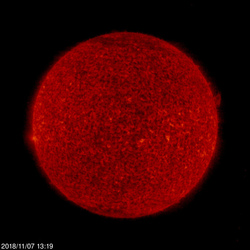 We saw another week with no sunspots, and the average daily solar flux softened from 68.6 to 67.7. The average planetary A index rose from 4.4 to 12, while the average mid-latitude A index went from 3.4 to 8.1. On November 5 the planetary A index rose to 35, while Alaska's college A index went to 44. Those numbers indicated disturbed conditions.
We saw another week with no sunspots, and the average daily solar flux softened from 68.6 to 67.7. The average planetary A index rose from 4.4 to 12, while the average mid-latitude A index went from 3.4 to 8.1. On November 5 the planetary A index rose to 35, while Alaska's college A index went to 44. Those numbers indicated disturbed conditions.







